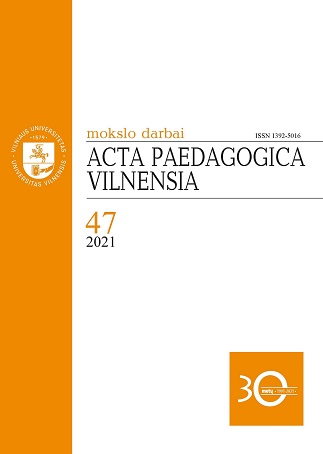Teachers’ Attitudes on the Development of Critical Thinking by Experiential Learning
Teachers’ Attitudes on the Development of Critical Thinking by Experiential Learning
Author(s): Luka Pongračić, Ana Maria MarinacSubject(s): Preschool education, School education, Higher Education , Educational Psychology, Pedagogy
Published by: Vilniaus Universiteto Leidykla
Keywords: critical thinking; experience; learning; teacher; teaching methods;
Summary/Abstract: The content that is taught in school, but also outside it, needs to be connected with real (everyday) life. Teachers need to turn content into experience for their students, which is no easy task. The aim of this research is to determine the extent to which primary school teachers, secondary school teachers, and higher education teachers use this method in their work in order to develop critical thinking in their students and how much importance they attach to it during their work in teaching. A questionnaire on critical thinking and experiential learning (N = 168) was conducted, the results of which were analyzed with regard to gender, level of education, work experience, diluted to teach the work environment. The results show that the method of experiential learning with the aim of developing critical thinking is used to a greater extent in teaching (mean = 4.17, SD = 0.55). Differences were observed only with respect to work experience, where teachers with more work experience work statistically significantly more (F = 0.027; t = 3.31; p < 0.01) on developing critical thinking. On the other hand, the need for further awareness, especially of younger teachers, on how to apply experiential learning and what it is important for has been proven. This research has shown the already recognized importance and aspiration to develop critical thinking in students at all levels of education, which will ultimately result in both developed and self-aware individuals and society. It is worrying that about 40% of teachers still do not conduct interactive learning on a regular basis, but it is encouraging that most teachers still recognize how important it is and apply it on a daily basis.
Journal: Acta Paedagogica Vilnensia
- Issue Year: 2021
- Issue No: 47
- Page Range: 108-121
- Page Count: 14
- Language: English

